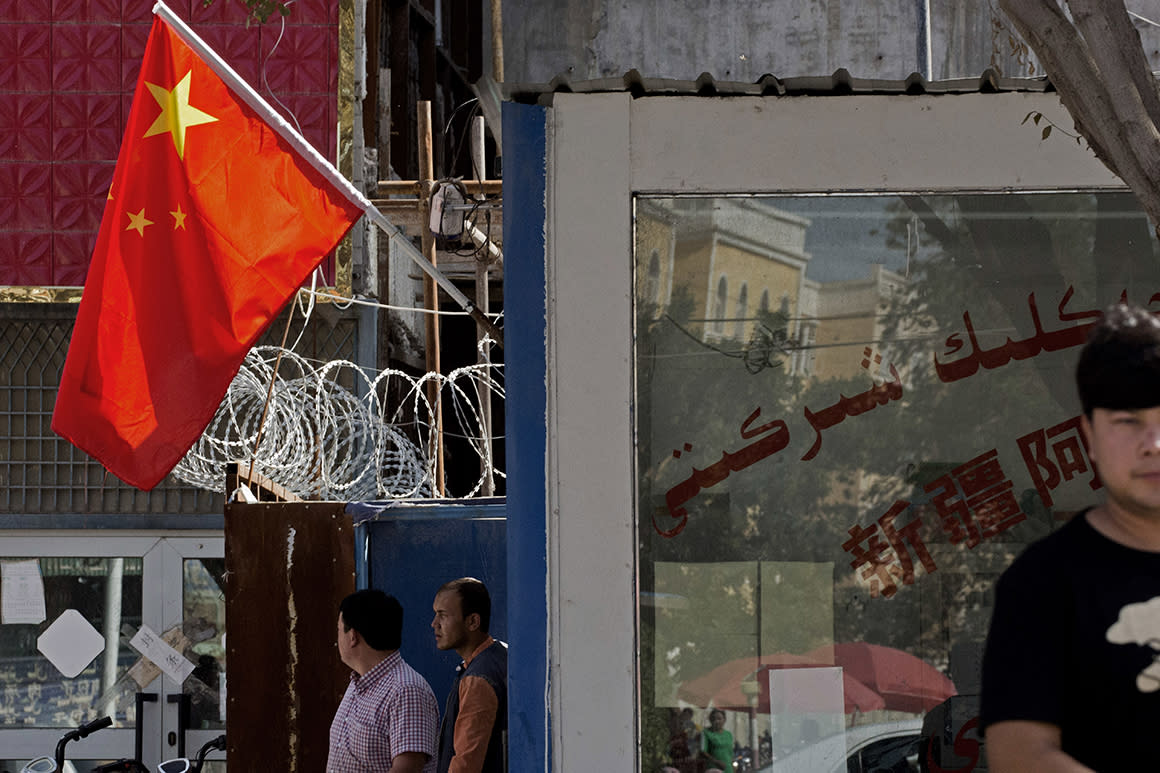USMCA and supply chains come up in parliamentary study on Uighurs

OTTAWA — The supply chains feeding into Chinese exports are taking center stage during Canadian parliamentary hearings that are exploring accusations of human rights violations by Beijing against the country’s Uighur minority.
The subcommittee on international human rights continued its study Tuesday of potential responses — including possible sanctions — against China amid allegations of mass imprisonment, torture, forced sterilization and slave labor of Uighur Muslims and ethnic Kazakhs in the Xinjiang region.
The newly implemented North American trade agreement was highlighted for Members of Parliament as a starting point.
University of Ottawa law professor Errol Mendes said the USMCA, which came into force July 1, includes a prohibition against the import of goods made with forced labor, either all or in part.
Mendes, who appeared on a panel that included Magnitsky legislation campaigner Bill Browder, urged Canada to immediately start working with the U.S. and other allies to increase the scrutiny of companies using slave labor from Xinjiang.
China has rejected the accusations of repression, calling its Xinjiang facilities “vocational education and training centers.”
What about retaliation from the Asian superpower? When asked about concerns of countermeasures from Beijing, Mendes called on democratic countries to stick together behind a longer-term strategy on how to deal with China.
“We cannot take that type of black mail and just cry uncle,” Mendes said. “The thing that China treasures more than anything else is the ability of their economic sphere to carry on growing and they rely very much on … cooperation with the rest of the world in terms of trade, in terms of investments.”
More than Five Eyes? Mendes recommended, for example, that the Five Eyes intelligence alliance of English-speaking countries expand its scope to include the protection of human rights and the preservation of the rule of law. He suggested it also add to its membership beyond just Canada, the U.S., New Zealand, Australia and the United Kingdom.
Magnitsky sanctions: Browder, an American financier, told MPs he was surprised Canada had yet to follow the U.S. in imposing Magnitsky sanctions on several Chinese officials responsible for what he called the “genocide” in Xinjiang.
“I’m scratching my head and wondering why Canada, who has the Magnitsky Act specifically for this purpose, doesn’t apply those sanctions right now,” said Browder, who pushed governments to adopt the punitive legislation. “So, I’m here today to strongly advocate for Canada to join the United States in sanctioning the Chinese officials responsible for this, and to hopefully expand that sanctions list so that many more people in China who are perpetrating this genocide are held responsible.”
He said he could see a scenario where Canada and the U.K., which recently implemented its own Magnitsky legislation, announce their sanctions in concert.
The legislation, adopted by seven countries around the world, is named after Browder’s lawyer, Sergei Magnitsky. Magnitsky was arrested in Russia following his investigation into corruption. He was tortured and later died in custody.
What Canada is doing: In an email Tuesday, a spokesperson for Foreign Affairs Minister François-Philippe Champagne said Canada remains “deeply disturbed by the troubling reports on the situation in Xinjiang and has voiced its concerns.” The statement said Champagne discussed the issue two weeks ago during a call with Five Eyes allies and recently co-signed an international declaration on the matter.
“Canada has taken action by publicly and consistently calling on the Chinese government to end the repression in Xinjiang. Our position has been relayed directly to Chinese officials as well,” the statement said. “Our government continues to consider every option when it comes to standing up for human rights around the world.”
Compelling executive action: Asked about how to put more pressure on Canada's executive branch to act, Browder recommended the country consider amending its Magnitsky Act to include a legislative tool similar to a congressional “trigger” used in the U.S.
While nothing can force the executive to impose sanctions, he said the tool obligates the U.S. government to report within 120 days why it did or did not impose sanctions on any individual recommended by committee chairs.
For Canada, he said the amendment could compel some kind of reporting to Parliament “which gives you more oversight over why sanctions have been applied or have not been applied, and hold the government’s feet to the fire.”
Due diligence: Mendes recommended Canada examine legislation in France that requires companies to demonstrate — in advance — that their products have no connection to forced labor. The consequences for misreporting are financial penalties, he added.
“History has shown that silence is the complicit partner to genocide,” he told MPs. “Canada cannot be silent or inactive against what I consider mounting crimes against humanity, including genocidal acts, against the Uighurs.”

